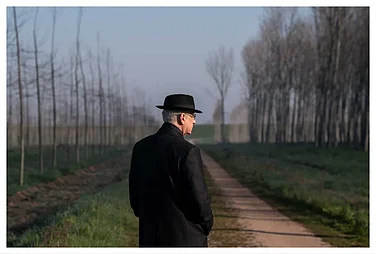
It is all about soundtrack, camerawork, editing techniques and special-effects. This war film does what other works in the same genre have failed to do—create a narrative that survives totally on form. The storyline is thin and predictable. After giving seven best years of his life to the United States navy, top naval aviator Lieutenant Chris Burnett (Owen Wilson) feels repressed and burnt-out. Chided by Admiral Reigart (Gene Hackman) for impatience and a short-sighted vision of military life, Burnett goes on a Christmas-eve photo reconnaissance mission. He extends his brief and flies into a demilitarised zone near the Balkan coast, guarded by the American navy under nato command. He spots Serb activity, but his plane is shot down. His pilot gets killed in cold blood and he runs for his life in hostile enemy territory, pursued relentlessly by ruthless and motivated Serbs, knowing that a rescue mission is out of the question because it might jeopardise the "Cincinnati Accord" between Bosnian Serbs and Muslims. Reigart, who overturns orders to save his man, ultimately helps Burnett. But director John Moore uses this real-life saga, which could have turned into another search and rescue mission story, to capture the sheer pace and impact of action.
Unlike other 'wham bam' movies, Moore doesn't colour action with panache and style. The backdrop remains blue, white, grey, stark and unforgiving. Wilson is filmed in long shots, which suddenly explode into blinding, close distance action. Transitions move in a jiffy, in great speed, transferring the mercilessness of Burnett's position to formal cinematic space. The soundtrack transits between apocalyptic choral singing and jazzy rock. Events interrupt music only to give way to a more racy sound, which lends a crisp feel to the environment.
The way two opposite musical styles are used underlines the hidden, contradictory pulls of the movie. If choral singing brings the more traditional (read patriotic) elements (relevant especially after September 11) to the fore, rock highlights Burnett's farcical/adventurous situation—he is a man dumped by his own navy. Moore makes Owen sustain his now-kiddish, now-determined expression, turning him into the reluctant hero of the hour. Hackman's helpless, cliched routine as the military man forced to act against his calling by geopolitical reality is kept in wraps, subservient to the blasts, snow and blood. Political reports, emotional aspects, the twists and turns, which make for good stories, are also kept in the background. This is one film that almost succeeds in letting nothing come in the way of a power-driven movement.


























